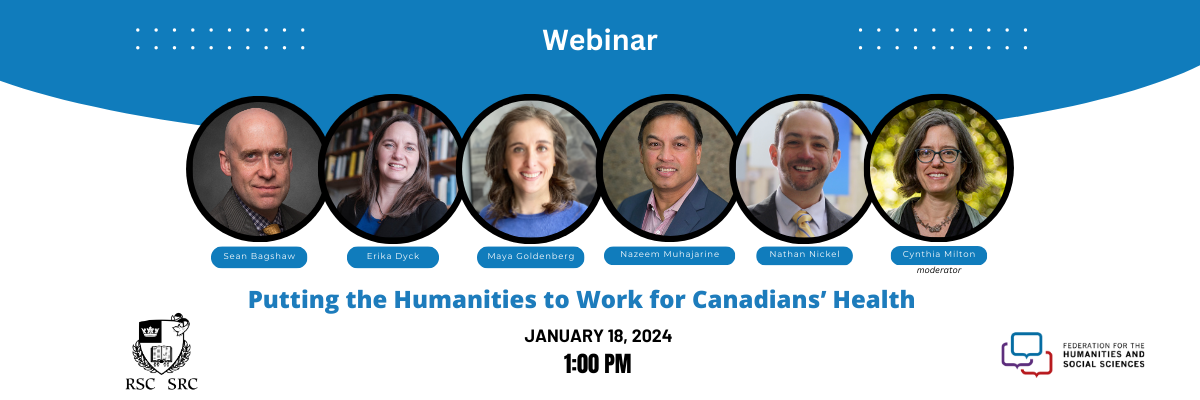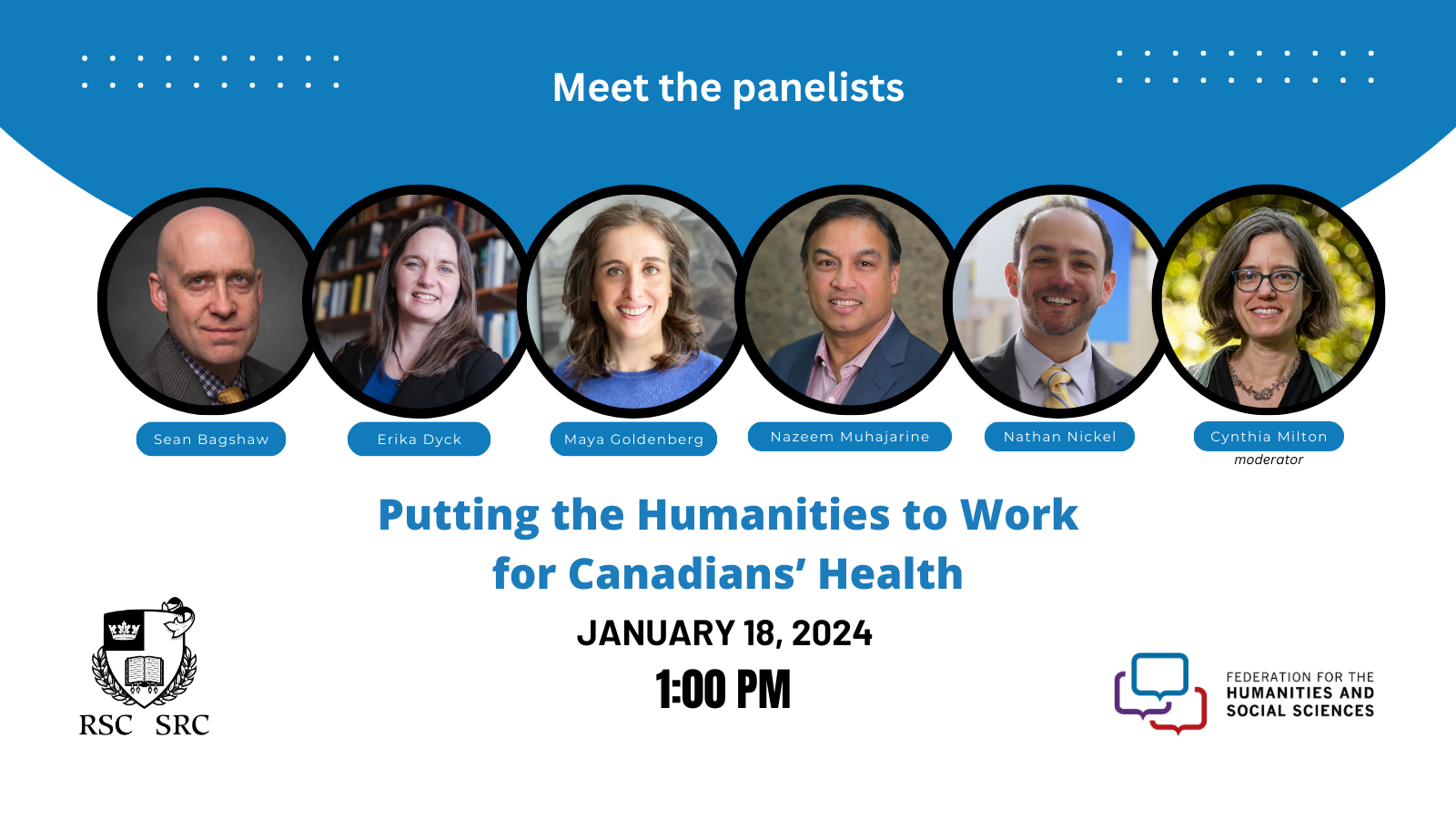
Event Description
COVID-19 has been a stark reminder that understanding a novel pathogen is essential but insufficient to protect us from disease. Biomedical and technical solutions are necessary, but they do not prevent or resolve misinformation, vaccine hesitancy, institutional amnesia (such as the forgetting of the SARS Commission report), or resistance to public health measures, nor are they sufficient to advance the development of more equitable and effective healthcare systems. The Humanities have the evidence base and the methodological tools to help address such social and cultural challenges.
We need to reignite the conversation about integrating the Humanities better into health research and health systems, including Humanities knowledge of our values and our pasts, understanding of the cultural forces that maintain inequities, and ability to analyze how we discuss and understand health. The Humanities teach us that we have agency in our world, including a capacity to learn from the past and reinterpret our present to build a better future.
On January 18, 2024, at 1:00pm EST, the RSC and The Federation for the Humanities and Social Sciences hosted an hour-long webinar convening a panel to discuss how the Humanities – a group of methodologically diverse fields, including interdisciplinary studies that overlap significantly with the social determinants of health – are an underused source of cultural and social insight that is increasingly important and could be better leveraged.
Read the report
Moderator
Cynthia Milton
Panelists
Sean Bagshaw is a Professor and Chair of the Department of Critical Care Medicine, Faculty of Medicine and Dentistry, at the University of Alberta. Dr. Bagshaw has been supported by a Canada Research Chair in Critical Care Outcomes and Systems Evaluation. He has research expertise in clinical epidemiology, clinical trials, and health services research. His research focuses on acute kidney injury, vulnerable populations (e.g., elderly, frail), and ICU organization and capacity. He has published over 450 scientific peer-reviewed papers.
Erika Dyck’s research focuses on history of health and medicine with an emphasis on mental health, experimentation, and health policy.
Maya Goldenberg is a philosopher of science and medicine with a focus on the connections between science and values, evidence and ethics, and science and the public. Her current research is focused on vaccine hesitancy.
Nazeem Muhajarine, PhD, FCAHS, is a professor and epidemiologist in Community Health and Epidemiology, College of Medicine, University of Saskatchewan. He is also the Director, Saskatchewan Population Health and Evaluation Research Unit. Nazeem has led seven COVID-19 research projects, provincially and nationally, and has been a frequent communicator on COVID-19 during and pandemic.
Nathan Nickel is the Director of the Manitoba Centre for Health Policy, an Associate Professor of Community Health Sciences at the University of Manitoba, Scientist at the Children’s Hospital Research Institute of Manitoba, and Associate Editor of the International Breastfeeding Journal. Nickel’s research program uses a cross-disciplinary, team-science approach, partnering with scientists, community, and government policy- and decision-makers to generate actionable evidence to improve population health and well-being.


